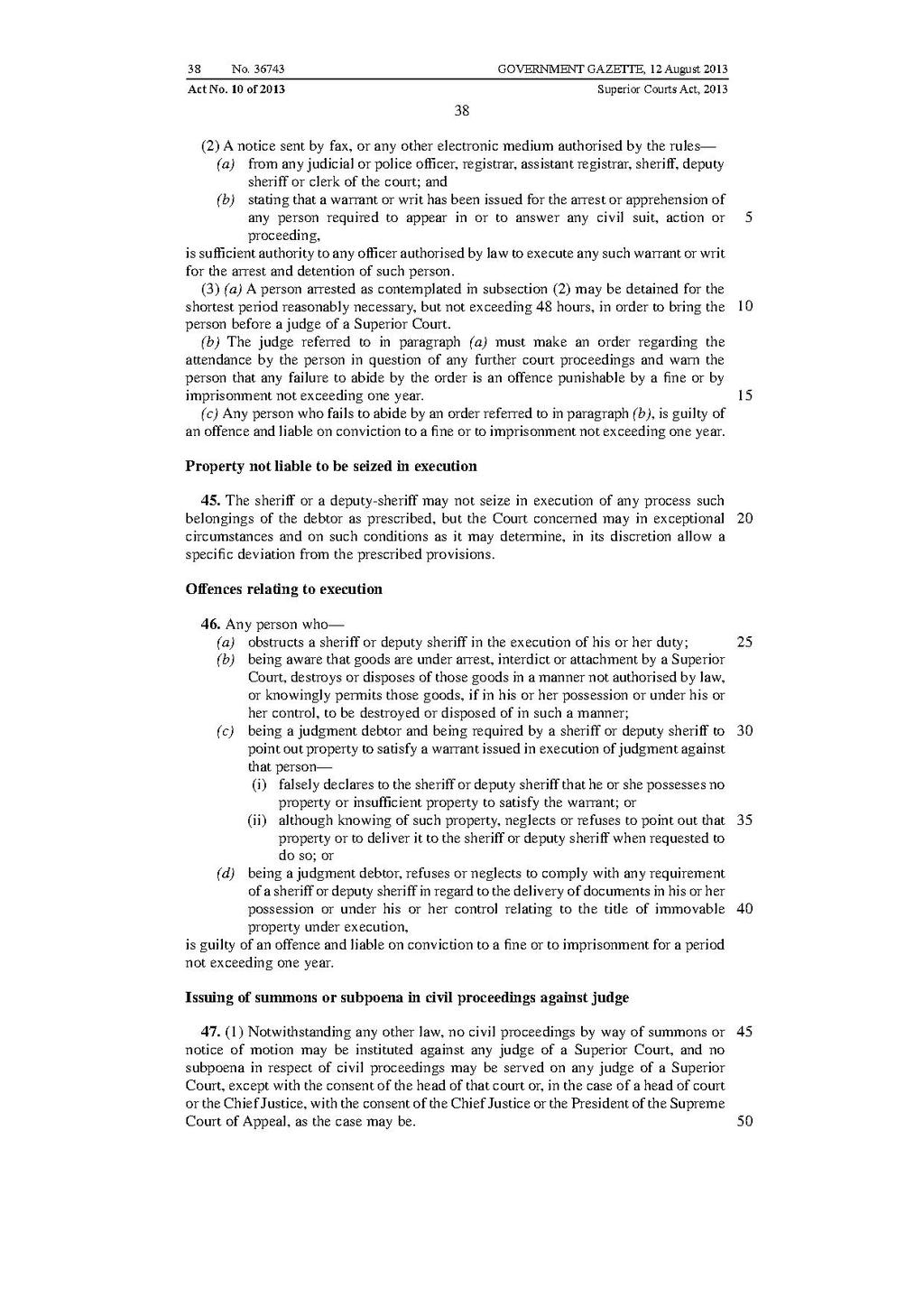38
(2) A notice sent by fax, or any other electronic medium authorised by the rules—
is sufficient authority to any officer authorised by law to execute any such warrant or writ for the arrest and detention of such person.
(3) (a) A person arrested as contemplated in subsection (2) may be detained for the shortest period reasonably necessary, but not exceeding 48 hours, in order to bring the person before a judge of a Superior Court.
(b) The judge referred to in paragraph (a) must make an order regarding the attendance by the person in question of any further court proceedings and warn the person that any failure to abide by the order is an offence punishable by a fine or by imprisonment not exceeding one year.
(c) Any person who fails to abide by an order referred to in paragraph (b), is guilty of an offence and liable on conviction to a fine or to imprisonment not exceeding one year.
Property not liable to be seized in execution
45. The sheriff or a deputy-sheriff may not seize in execution of any process such belongings of the debtor as prescribed, but the Court concerned may in exceptional circumstances and on such conditions as it may determine, in its discretion allow a specific deviation from the prescribed provisions.
Offences relating to execution
46. Any person who—
is guilty of an offence and liable on conviction to a fine or to imprisonment for a period not exceeding one year.
Issuing of summons or subpoena in civil proceedings against judge
47. (1) Notwithstanding any other law, no civil proceedings by way of summons or notice of motion may be instituted against any judge of a Superior Court, and no subpoena in respect of civil proceedings may be served on any judge of a Superior Court, except with the consent of the head of that court or, in the case of a head of court or the Chief Justice, with the consent of the Chief Justice or the President of the Supreme Court of Appeal, as the case may be.
